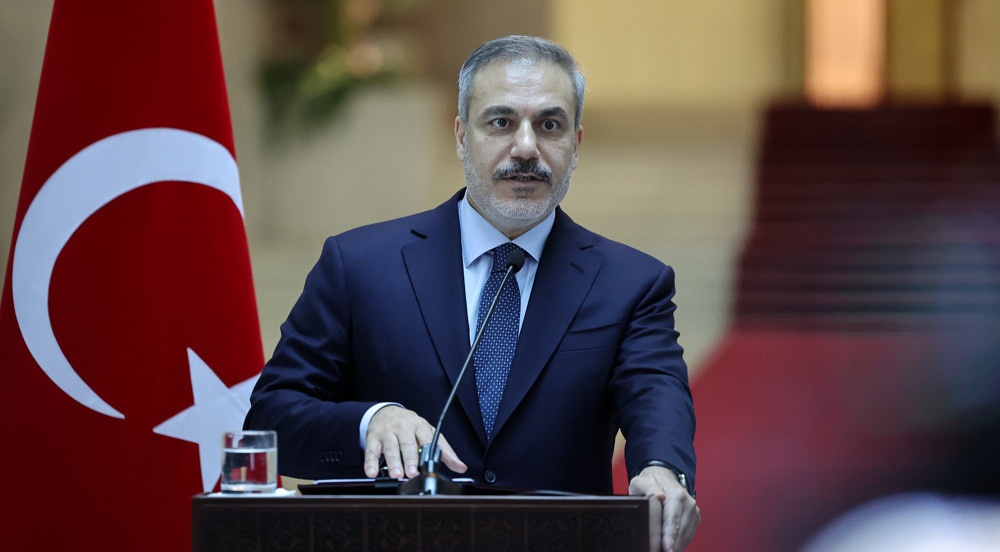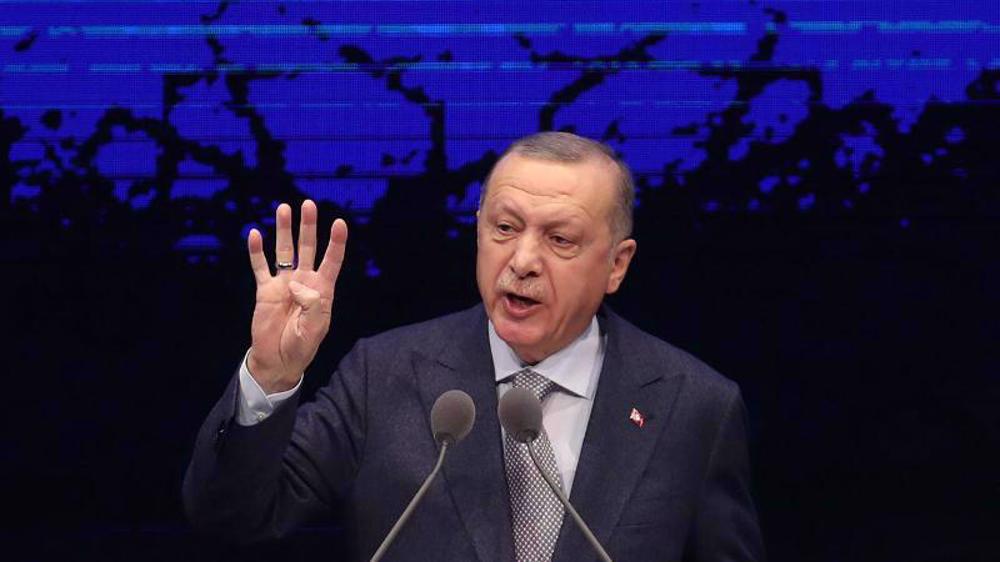Ankara had talks with Moscow on Russia’s S-500 missile system: Erdogan
Turkish President Recep Tayyip Erdogan says Ankara has had talks with Moscow over Russia’s S-500 surface-to-air missile defense systems, announcing that Turkey has also no “problem” with the Kremlin over its previous deal on receiving batteries of S-400 systems.
“In our talks with [Russia President Vladimir] Putin we are not thinking of stopping with the S-400s. We have had talks on the S-500s too,” said the Turkish leader at a press conference upon his return from Ukraine and Serbia on Friday.
The S-500 air shield systems are currently under development by Russian manufacturer Almaz-Antey, and will enter service in the coming years. The systems are said to be able to simultaneously detect and destroy up to 10 ballistic missiles at speeds of up to 7 kilometers per second, as well as aircraft, helicopters and cruise missiles, within a radius of 600 kilometers.
Erdogan added that Turkey would “take joint production steps” of the S-400 systems as soon as it received the second batch of the advanced air shield from Russia.
The Turkish leader’s comments came a month after Ankara and Moscow reached an agreement on the delivery of the S-400 systems to Turkey. At the time, Erdogan said a deposit had already been paid for two batteries of the advanced missile systems.
Under the deal, Russia would send two S-400 systems to Turkey within the next year and then help the country domestically produce two more batteries. The deal is said to be worth around $2.5 billion.

The S-400, whose full name is the Triumf Mobile Multiple Anti-Aircraft Missile System (AAMS), is an advanced Russian missile system designed to detect, track, and destroy planes, drones, or missiles as far as 402 kilometers away. It has previously been sold only to China and India.
Turkey, being a NATO member state with the second-largest army in the military alliance, drew an outpouring of criticism from the US and other members of the bloc, which criticized Ankara for drifting toward Moscow.
“They went crazy because we made the S-400 agreement. What were we supposed to do, wait for you?” said Erdogan on September 13, a day after he inked the deal with the Russians.
Earlier in the week, however, NATO Secretary-General Jens Stoltenberg said Turkey’s decision to purchase the S-400 from Russia does not harm the military bloc’s interests.
“I spoke with President Erdogan when I met him in September. I said that the kind of capabilities different nations want to acquire is a national decision,” he said.
Turkey is striving to boost its air defense, particularly after Washington decided in 2015 to withdraw its Patriot surface-to-air missile system from Turkey's border with Syria, a move that weakened Turkey’s air defense.
Before gravitating towards Russia, the Turkish military reportedly walked out of a $3.4 billion contract for a similar Chinese system. The withdrawal took place under purported pressure from Washington.
Turkey’s ties with its Western allies in NATO have been strained over a range of issues. Erdogan has been critical of Washington for supporting Kurdish groups in Syria that he says are responsible for terror attacks inside Turkey.
The Turkish leader has also lambasted American officials for rejecting his requests to hand over Fethullah Gulen, a powerful opposition figure living in the US, who is blamed by Ankara for masterminding last year’s mid-July failed coup.
VIDEO | Press TV's news headlines
VIDEO | Israel bans UNRWA amidst war on Gaza
Gaza's Nasser Hospital on verge of closure as Israel blocks fuel deliveries: UK charity
Venezuela’s Maduro sworn in for third term, pledges to form 'new democracy'
Iran backs stable, independent Lebanon free from foreign occupation: Araghchi
Yemen defies a year of US-UK-Zionist aggression in solidarity with Palestinians
Yemen strikes US aircraft carrier in Red Sea as Israel hits Yemeni targets
Los Angeles under siege: Looters, thieves targeting evacuation zones in fire-wracked city













 This makes it easy to access the Press TV website
This makes it easy to access the Press TV website